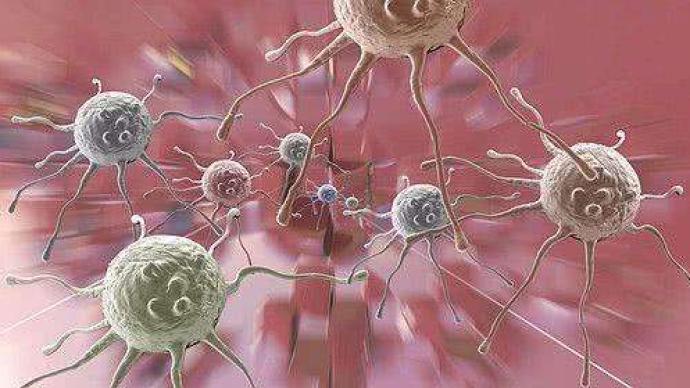
According to the World Health Organization (WHO), breast cancer is one of the most common cancers, affecting approximately 2.3 million people worldwide each year. If doctors catch breast cancer early, patients usually respond well to treatment. However, things get worse if the cancer has metastasized -- when circulating cancer cells break away from the original tumor, travel through the body through blood vessels and form new tumors in other organs.
To date, cancer research has not focused much on the question of when tumors shed metastatic cells. The researchers had previously hypothesized that tumors would continue to release such cells. However, a new study by researchers at ETH Zurich, the University Hospital of Basel and the University of Basel in Switzerland has come to a surprising conclusion: Circulating cancer cells that later form metastases appear mainly in the patient's sleep. stage. The research was published in the latest "Nature" journal.
"When the affected person falls asleep, the tumor wakes up," concludes Nicola Estor, professor of molecular oncology at ETH Zurich and head of the study. In their study, 30 women with cancer were included. , and mouse models. The researchers found that tumors produced more circulating cells when the organism was asleep. Cells that leave a tumor at night divide faster than circulating cells that leave the tumor during the day, and are therefore more likely to form metastases.
"The escape of circulating cancer cells from the original tumor is controlled by, for example, melatonin, which determines our circadian rhythm," said Zoe Diamantoplou, lead author of the study and postdoctoral researcher at ETH Zurich.
The study also suggests that the timing of taking a tumor or blood sample for diagnosis may affect oncologists' findings. The researchers were surprised to find very different levels of circulating cancer cells in samples taken at different times of the day. Compared to humans, mice found a surprising number of cancer cells per unit of blood—because, as nocturnal animals, mice sleep during the day, which is when scientists collect most of their samples.
Next, the researchers will figure out how to incorporate these findings into and optimize existing cancer therapies, investigating whether different types of cancer behave similarly to breast cancer, and whether existing therapies would be more successful if patients were treated at different times.
(Original title, "Unexpected Discovery: Breast Cancer Spreads Faster During Sleep")
To date, cancer research has not focused much on the question of when tumors shed metastatic cells. The researchers had previously hypothesized that tumors would continue to release such cells. However, a new study by researchers at ETH Zurich, the University Hospital of Basel and the University of Basel in Switzerland has come to a surprising conclusion: Circulating cancer cells that later form metastases appear mainly in the patient's sleep. stage. The research was published in the latest "Nature" journal.
"When the affected person falls asleep, the tumor wakes up," concludes Nicola Estor, professor of molecular oncology at ETH Zurich and head of the study. In their study, 30 women with cancer were included. , and mouse models. The researchers found that tumors produced more circulating cells when the organism was asleep. Cells that leave a tumor at night divide faster than circulating cells that leave the tumor during the day, and are therefore more likely to form metastases.
"The escape of circulating cancer cells from the original tumor is controlled by, for example, melatonin, which determines our circadian rhythm," said Zoe Diamantoplou, lead author of the study and postdoctoral researcher at ETH Zurich.
The study also suggests that the timing of taking a tumor or blood sample for diagnosis may affect oncologists' findings. The researchers were surprised to find very different levels of circulating cancer cells in samples taken at different times of the day. Compared to humans, mice found a surprising number of cancer cells per unit of blood—because, as nocturnal animals, mice sleep during the day, which is when scientists collect most of their samples.
Next, the researchers will figure out how to incorporate these findings into and optimize existing cancer therapies, investigating whether different types of cancer behave similarly to breast cancer, and whether existing therapies would be more successful if patients were treated at different times.
(Original title, "Unexpected Discovery: Breast Cancer Spreads Faster During Sleep")
Related Posts
0 Comments
Write A Comments